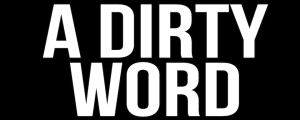I’ve been emotionally embroiled these last few days in the Amazon.com uproar. I value Amazon—they have succeeded in building a valuable community book culture, after all—and so that’s one reason for my intense response. Having to forsake Amazon.com (and the companies it owns: AbeBooks.com! Audible.com!) would be wrenching. I don’t want Amazon.com to be the bad guys.
In simple terms, what has happened is that books tagged “adult” are X-rated, and by stripping off their sales rank, these books are not as visible to the public: rather like the porn magazines on the high shelf with a board across the front of the shelf so that the wee ones can’t see them. By not being as visible to the public, harder to find, these X-rated books will not sell as well as if they had been visible.
I don’t quarrel with standards. I’m not a supporter of a wide-open, no rules barred society. I believe in certain civic restrictions. If a book were tagged as “racist hate literature” or “violent kiddie porn,” for example, I would be in favour of suppression.
One problem, as I see it, is with the word “adult.” Being “adult” is a good thing—is it not?—as in “Grow up! Act like an adult!” When did “adult” become a synonym for something unacceptable to society and public viewing?
One of the things that is being claimed is that an Amazon.com employee tagged tens of thousands (57,310 is the number quoted) of books “adult”—either intentionally or by mistake: who knows?—which thereby stripped these titles of their sales ranking: prize-winning literary novels, books of political theory, classical works of literature. Is it possible that it could have been a language confusion? (“Is this book adult? Why yes.”)
It’s doubtful that the explanation is so simple. The majority of books tagged were about homosexuals. There are many unanswered questions and as many rumoured explanations (including the hypothesis that Amazon.com has been infiltrated or hacked into by an anti-gay hate group).
However it plays out—and a fuller explanation is expected today—I propose that Amazon.com come up with a tag other than “adult,” for starters. It should be a tag that is clear (and not so easy to type). The guidelines to employees should be carefully debated, considered and made public. The designation should be verified by more than one employee (who both sign off on it and are therefore accountable). It should be possible for the author and/or publisher to protest the designation.
This is time-consuming and therefore expensive and impractical, of course. The easiest, least-thorny and likely the most logical path would simply be to show the sales ranking on all books. (Already there are reports that Amazon.com is doing just that: yay!) A sales rank, after all, a numerical fact. A commenter on The Daily Beast questioned: If some sales ranks can be erased, can others, therefore, be enhanced?
I apologize to the readers of this blog for going on—and on!—about this. As someone who is usually to be found puzzling out the 17th century, I rarely get so caught up with current concerns. Perhaps I should forsake Twitter. It’s like putting a finger into a here-and-now light-bulb socket.
Link to a current L.A. Times article on the Amazon.com uproar:http://tinyurl.com/d4wc9v
Link to my Blog Tour details: http://tinyurl.com/cbk662
Link to my blog (and website): http://sandragulland.blogspot.com/
Link to my newsletter sign-up: http://sandragulland.com/contacts/index.html


